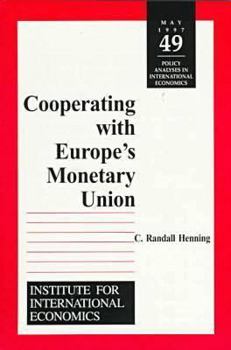Cooperating with Europe's Monetary Union
Europe's monetary union will represent the most profound transformation of the international monetary system since the transition from fixed to flexible exchange rates in the early 1970s. It will compete with the erosion of American dominance and the dramatic increase in capital mobility for the distinction of being the most far-reaching change in the global monetary system since the Bretton Woods conference of 1944. Economic and Monetary Union (EMU) will create in Europe a new monetary actor with an economic size roughly comparable to the United States, ushering in a new era in international monetary relations. Nonetheless, while broad interests coincide, the creation of the monetary union will pose challenges to American, Japanese, and other non-European policymakers. Europe's monetary union could prove to be a difficult partner in international monetary cooperation. Henning recommends that European institutions and policy processes be strengthened, representation of the monetary union in the G-7 be consolidated, and that European, American, and Japanese authorities cooperate to reduce instability during the transition to monetary union.
Format:Paperback
Language:English
ISBN:0881322458
ISBN13:9780881322453
Release Date:May 1997
Publisher:Peterson Institute for International Economic
Length:112 Pages
Weight:0.30 lbs.
Dimensions:0.2" x 6.0" x 9.0"
Grade Range:Postsecondary and higher
Customer Reviews
1 rating
Guide to problems arising from Europe's EMU
Published by Thriftbooks.com User , 27 years ago
Logically laid out, the problems arising from 'ever closer union' and their consequences are outlined in a nutshell, while delving deep enough to uncover the essential determining factors. One of the essential guides to the scale of the effect of Economic and Monetary Union in Europe will have on Both the US and global economies






